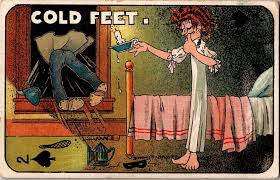By Sherri Stewart
American courts, in their infancy, adopted the Common Law of England as the standard for deciding criminal and tort cases. Over the years, however, most states instituted their own model penal codes, which replaced the Common Law. However, many of our oldest cases stem from those early principles derived from the Mother Country. Let’s home in on one crime in particular—burglary, which contrary to most people’s thinking, is not theft.
The Common Law definition of burglary is “The breaking and entry of the dwelling of another in the night with the intent of committing a felony therein.” Each of the terms—breaking, entry, dwelling of another, night, intent to commit a felony—must be proven. Breaking, by definition, means a slight opening of a door or a window. So if the door is wide open and someone enters to commit a crime, it’s not burglary because the defendant didn’t open the door further. Entry means the accused’s body or implement must cross through what was opened. Dwelling is a place where someone returns regularly to sleep. Night means the time between one hour after sunset and one hour before sunrise. Intent means at the point of entry, the defendant must intend to commit a felony, which can be rape, murder, arson, larceny, etc.
In People v. Dupree (98 Mich.26,57 N.W. 1047) in the year 1893, the defendant broke into a shoe shop by climbing through a window at night and stole three pairs of shoes. He argued that because it was a shoe shop, it wasn’t a dwelling, and that at the time of the crime, the window was already partially opened. The prosecutor maintained that the shoe shop only occupied the front room of the home of the proprietor who lived behind and above it. He also said that any act of opening even if it is only a few more inches constitutes a breaking.
In Walker v. State (63 Ala. 49.), the defendant took corn from a corn crib by using an augur to drill a hole in the floor under the crib of a neighbor, so that the corn flowed through the hole into a sack underneath. He maintained he wasn’t guilty of burglary because his body didn’t enter the room. The court found that the augur was, in essence, an extension of his body, and he was convicted of burglary.
So, you be the judge.
Simon comes to Adam’s house one night to say hello. After ringing the bell and not getting an answer, Simon decides to try the door, which he finds unlocked. He pushes the door open and enters Adam’s house only to discover that Adam is not home. Simon turns around and is about to leave when he sees a diamond ring sitting on Adam’s dining room table. Simon decides to take the ring. Did Simon commit burglary? Think like a lawyer.
Sherri Stewart loves a clean novel, sprinkled with romance and a strong message that challenges her faith. She spends her working hours with books—either editing others’ manuscripts or writing her own. Her passions are traveling to the settings of her books and sampling the food. She traveled to Paris for this book, and she still works daily on her French, although she doesn’t need to since everyone speaks English. A recent widow, Sherri lives in Orlando with her lazy dog, Lily. She shares recipes, tidbits of the book’s locations, and other authors' books in her newsletter.
Subscribe at http://eepurl.com/gZ-mv9
What Hides behind the Walls
If the Nazis stole your house, wouldn’t you be justified in stealing it back now that the war is over?
When Tamar Feldman admits to her husband, Daniel, and mentor, Neelie Visser, that she broke into her former home, they scold her for taking such a risk. Tamar is tired of being careful. She’s tired of living in the present, as if the past doesn’t matter. But the painting of the violin girl in her former bedroom draws her back again and again. She finally steals the painting to return it to its former owner. Now maybe this small act of justice will help her start to heal. What Tamar doesn’t realize is the past isn’t finished with her yet; in fact, it’s as close as the walls in her house and even follows her to Paris.









Thank you for your post today, and Happy New Year!! This was very interesting. Knowing the definitions of the legal terms helps one understand more about the burden of proof.
ReplyDeleteHappy New Year to you. The definitions are crucial.
DeleteJust goes to show that semantics are always important! 😄 Technically, Simon didn't commit burglary because he didn't enter the dwelling with the intent to commit a felony (larceny/theft).
ReplyDeleteNow you're thinking like a lawyer.
Delete